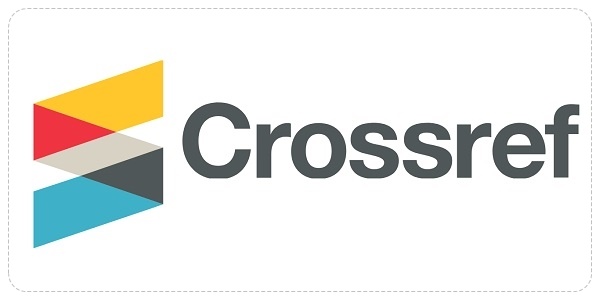The Effect of Problem-Based Learning (PBL) on Learning Outcomes: Meta-Analysis
Abstract
This study aims to analyze the effect of problem-based learning on learning outcomes. The research method carried out was a meta-analysis with a sample of 12 articles from qualified international journals (Q1, Q2 & Q3) and 2 articles from national journals. The instruments used in this study are coding sheets and research data will be analyzed using effect size calculations. The calculation of the average effect size was 1.83 with high effect size criteria in the 12 articles analyzed. The results of this study show that problem-based learning has a positive influence on learning outcomes. By analyzing 12 scientific articles, the study showed that PBL is effective in improving learners' learning outcomes. In addition, PBL has also been shown to correct misconceptions, develop critical thinking skills, and improve problem-solving skills. The results of this study provide strong support for the effectiveness of PBL in the context of chemistry education and the development of higher-order thinking skills. The study also highlights the importance of PBL in the context of modern education. Based on this meta-analysis, it is concluded that learning with problem-based learning has an influence on learning outcomes so that it is effectively used in learning to improve student learning outcomes.
Keywords
Full Text:
PDFReferences
Alakrash, H. M., & Razak, N. A. (2022). Education and the Fourth Industrial Revolution: Lessons from COVID-19. Computers, Materials & Continua, 70(1), 951-961.
Arends, R. (2014). Learning to teach. McGraw-Hill Higher Education: New York, NY.
Ariyana, Y., Pudjiastuti, A., Bestary, R., & Zamroni. (2018). Buku pegangan pembelajaran berorientasi pada keterampilan berpikir tingkat tinggi. Kemendikbud.
Ayyildiz, Y., & Tarhan, L. (2017). Problem-Based Learning in teaching chemistry : Enthalpy changes in systems. Research in Science & Technological Education, 1–20.
Azizi, A. (2022). Ilmu Pengetahuan Alam (IPA) dan Filsafat dalam pengembangan potensi lokal untuk pembelajaran masa depan. LAMBDA: Jurnal Ilmiah Pendidikan MIPA dan Aplikasinya, 2(3), 102-110.
Baran, M., & Sozbilir, M. (2017). An application of Context- and Problem-Based Learning (C-PBL) into Teaching Thermodynamics. Research Science Education, 46, 1–27.
Becker, K., & Park, K. (2011). Effects of Integrative Approaches among Science, Technology , Engineering, and Mathematics (STEM ) subjects on students’ learning : A preliminary meta-analysis. Journal of STEM Education, 12(5 & 6), 23–37.
Belinski, R., Peixe, A. M. ., Frederico, G. F., & Garza-Reyes, J. A. (2020). Organisational learning and industry 4.0: Findings from a systematic literature review and research agenda. Benchmarking: An International Journal, 27(8), 2435-2457.
Ben-Shachar, M. S., Lüdecke, D., & Makowski, D. (2020). Effectsize: Estimation of effect size indices and standardized parameters. Journal of Open Source Software, 5(56), 1-7.
Bestetti, R. B., Couto, L. B., Romão, G. S., Araújo, G. T., & Restini, C. B. A. (2014). Contextual considerations in implementing problem-based learning approaches in a Brazilian medical curriculum: the UNAERP experience. Medical education online, 19(1), 1-5.
Demirel, M., & Dagyar, M. (2016). Effects of Problem-Based Learning on attitude : A meta- analysis study. Eurasia Journal of Mathematics, Science & Technology Education, 12(8), 2115–2137.
Dewi, R. K. (2022). Analisis kesulitan belajar pada mahasiswa tadris kimia materi biokimia di UIN SATU Tulungagung. Jurnal Inovasi Pendidikan Kimia, 16(1), 41-46.
Dietrich, N., Kentheswaran, K., Ahmadi, A., Teychené, J., Bessière, Y., Alfenore, S., ... & Hébrard, G. (2020). Attempts, successes, and failures of distance learning in the time of COVID-19. Journal of Chemical Education, 97(9), 2448-2457.
Faozi, A. K. A., Fatekurohman, M., Aini, K., & Yuniar, D. (2020, May). Student’s problem solving abilities in project based learning (pjbl) based on learning community (lc). In Journal of Physics: Conference Series (Vol. 1538, No. 1, p. 012070). IOP Publishing.
Fritz, C. O., Morris, P. E., & Richler, J. J. (2012). Effect size estimates: Current use, calculations, and interpretation. Journal of Experimental Psychology: General, 141(1), 2–18.
Galib, L. M., Muliddin, & Irham. (2020). Keefektifan model pembelajaran berbasis masalah dengan strategi konflik kognitif terhadap pemahaman konsep gaya. Jurnal Biofiskim: Penelitian Dan Pembelajaran IPA, 2(2), 136–143.
Heryandi, Y. (2018). Problem Based Learning dengan strategi konflik kognitif meningkatkan kemampuan berpikir kritis matematis. EduMat, 7(1), 93-108.
Hidayatullah, R. S., Ariyanto, S. R., Mubarok, H., & Yohannes, A. (2020). Collaborative problem-based Learning: An analysis of problem-solving skills in vocational schools. IJORER: International Journal of Recent Educational Research, 1(3), 209-217.
Huang, J. (2020). Successes and challenges: Online teaching and learning of chemistry in higher education in China in the time of COVID-19. Journal of Chemical Education, 97(9), 2810-2814.
Ismail, N. A., Abd Wahid, N., Yusoff, A. S. M., Wahab, N. A., Abd Rahim, B. H., Abd Majid, N., ... & Zakaria, R. (2020, April). The challenges of industrial revolution (IR) 4.0 towards the teacher’s self-efficacy. In Journal of Physics: Conference Series (Vol. 1529, No. 4, p. 042062). IOP Publishing.
Kassymova, G., Akhmetova, A., Baibekova, M., Kalniyazova, A., Mazhinov, B., & Mussina, S. (2020). E-Learning environments and problem-based learning. International Journal of Advanced Science and Technology, 29(7), 346-356.
Kemendikbud. (2017). Model-model pembelajaran. Kemendikbud.
Korkmaz, G., & Kalayci, N. (2021). Problem and Project-Based Learning as an educational philosophy: A Novel conceptual model for higher education. African Educational Research Journal, 9(3), 774-789.
Kraft, M. A. (2020). Interpreting effect sizes of education interventions. Educational Researcher, 49(4), 241-253.
Kuvac, M., & Koc, I. (2018). The Effect of Problem-Based Learning on the Metacognitive Awareness of Pre-Service Science Teachers. Educational Studies, 45(5), 646-666.
Lase, D. (2019). Pendidikan di era revolusi industri 4.0. Jurnal Sundermann, 1(1), 28–43.
Luise, V., Piwowar, V., Rosa, I., & Ophardt, D. (2019). The impact of direct instruction in a problem-based learning setting. Effects of a video-based training program to foster preservice teachers’ professional vision of critical incidents in the classroom. International journal of educational research, 95, 1-12.
Maryanti, N., Rohana, R., & Kristiawan, M. (2020). The principal’s strategy in preparing students ready to face the industrial revolution 4.0. International Journal of Educational Review, 2(1), 54-69.
Matsuyama, Y., Nakaya, M., Okazaki, H., Lebowitz, A. J., Leppink, J., & Van Der Vleuten, C. (2019). Does changing from a teacher-centered to a learner-centered context promote self-regulated learning: a qualitative study in a Japanese undergraduate setting. BMC medical education, 19(1), 1-12.
Nahar, S. (2022). Improving students' collaboration thinking skill under the implementation of the quantum teaching model. International Journal of Instruction, 15(3), 451-464.
Rusman. (2017). Belajar & pembelajaran berorientasi standar proses pendidikan. Kencana.
Saldo, I. J. P., & Walag, A. M. P. (2020). Utilizing problem-based and project-based learning in developing students’ communication and collaboration skills in physics. American Journal of Educational Research, 8(5), 232-237.
Santyasa, I. W., Rapi, N. K., & Sara, I. (2020). Project Based Learning and academic procrastination of students in learning physics. International Journal of instruction, 13(1), 489-508.
Saputro, A. D., Atun, S., Wilujeng, I., Ariyanto, A., & Arifin, S. (2020). Enhancing pre-service elementary teachers’ self-efficacy and critical thinking using Problem-Based Learning Anip. European Journal of Educational Research, 9(2), 765–773.
Sari, M., & Asmendri. (2020). Penelitian Kepustakaan (Library Research ) dalam penelitian pendidikan IPA. Natural Science: Jurnal Penelitian Bidang IPA Dan Pendidikan IPA, 6(1), 41–53.
Sarwi, S., Baihaqi, M. A., & Ellianawati, E. (2021, June). Implementation of Project Based Learning Based on STEM approach to improve students’ problems solving abilities. In Journal of Physics: Conference Series (Vol. 1918, No. 5, p. 052049). IOP Publishing.
Srikan, P., Pimdee, P., Leekitchwatana, P., & Narabin, A. (2021). A problem-based learning (PBL) and teaching model using a cloud-based constructivist learning environment to enhance Thai undergraduate creative thinking and digital media skills. International Journal of Interactive Mobile Technologies, 15(22), 68-83.
Tangahu, W., Rahmat, A., & Husain, R. (2021). Modern education in revolution 4.0. International Journal of Innovations in Engineering Research and Technology, 8(1), 1-5.
Tarhan, L., & Acar, B. (2007). Problem-Based Learning in an eleventh grade chemistry class : ‘factors affecting cell potential.’ Research in Science & Technological Education, 25(3), 351–369.
Tosun, C., & Taskesenligil, Y. (2013). The effect of Problem-Based Learning on undergraduate students’ learning about solutions and their physical properties and scintific processing skills. Chemistry Education Research and Practice, 14(36), 36–50.
Valdez, J. E., & Bungihan, M. E. (2019). Problem-Based Learning approach enhances the problem solving skills in chemistry of high school students. Journal of Technology and Science Education, 9(3), 282–294.
Yoon, H., Woo, A. J., Treagust, D., & Chandrasegaran, A. (2012). The efficacy of problem-based learning in an analytical laboratory course for pre-service chemistry teachers. International Journal of Science Education, 36(1), 79-102.
Yusuf, B., Walters, L. M., & Sailin, S. N. (2020). Restructuring educational institutions for growth in the Fourth Industrial Revolution (4IR): A systematic review. Int. J. Emerg. Technol. Learn., 15(3), 93-109.
DOI: https://doi.org/10.17509/pdgia.v21i2.65061
Refbacks
- There are currently no refbacks.
INDEXED BY

This work is licensed under a Creative Commons Attribution-ShareAlike 4.0 International License
















